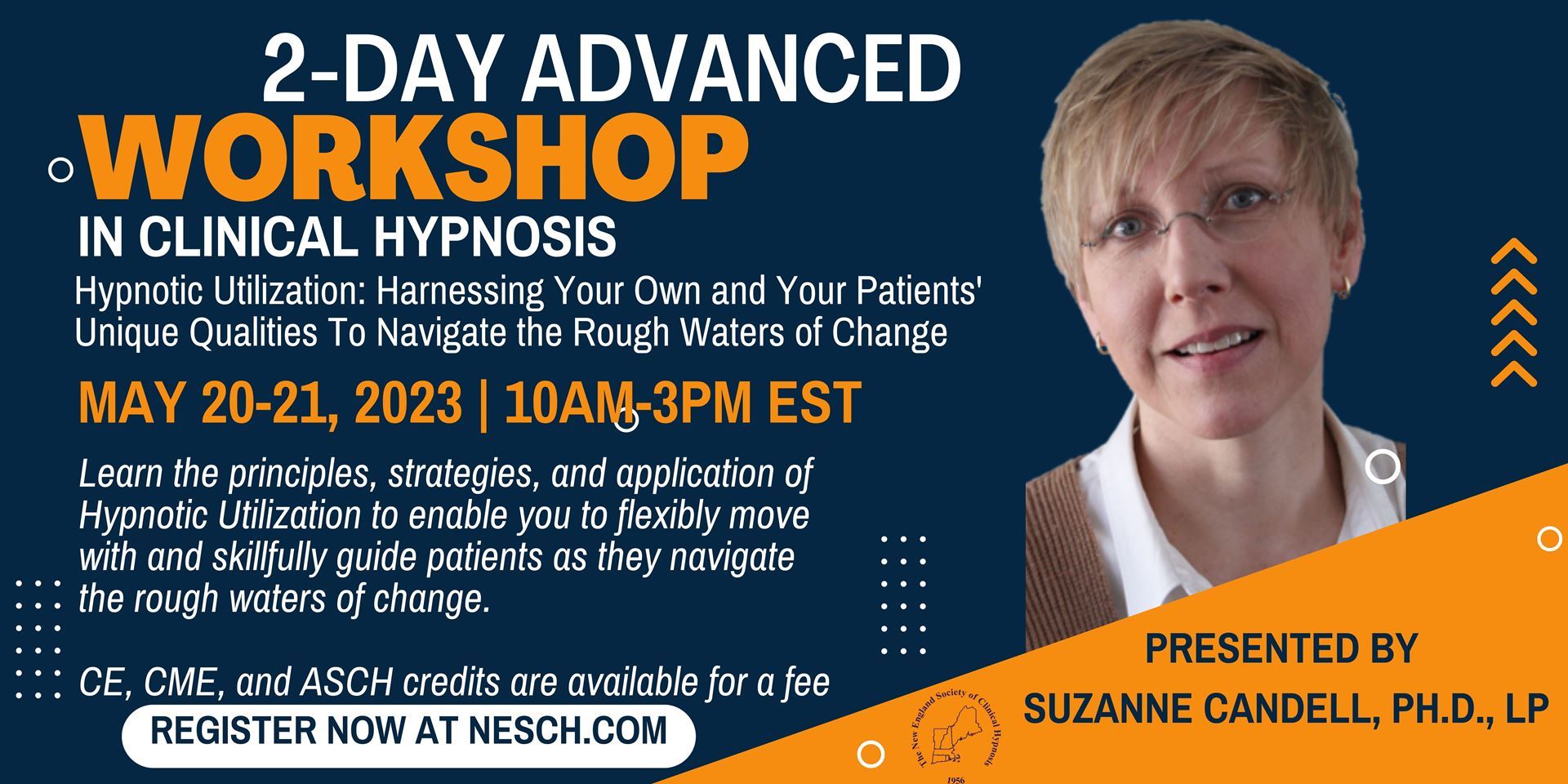
Description
To use Hypnotic Utilization is to attune – to yourself, to your patient, and to unbidden impressions and insights that may unfold in the space between.. Emerging from the work of Milton Erickson, MD, Hypnotic Utilization is a pragmatic, relationship-based and solution-focused set of strategies to enable clinicians to flexibly move with and skillfully guide patients as they navigate the rough waters of change. Utilization strategies focus on awareness, embracing what seems contrary to progress, and using language and non-verbal awareness to facilitate patients’ inherent creativity and self-healing capacities.
With rough waters rising in the past several years, many of our patients struggle with accepting the unacceptable – political changes, a pandemic, global climate change, as well as personal issues such as chronic illness and loss in general. The unacceptable threatens fundamental beliefs about who we are and how the world works, something humans reflexively resist. Hypnotic utilization, with its emphasis on inviting the wisdom in resistance to express itself enables patient awareness and curiosity about how these deep, often subconscious beliefs may need to be modified to accommodate reality.
On Day one, the principles underpinning utilization will be described, and current concepts that expand upon these principles will be identified to enable connections with psychobiological, cognitive psychological and attachment literatures. Specific strategies expressing key principles will be described and applied to anonymized cases, with the goal of enabling participants to refine their use of utilization in their practices.
Day two will focus on the application of utilization principles and strategies to addressing the challenge of accepting the unacceptable. A six-step model for using hypnosis to enable acceptance of the unacceptable will be explained
About Dr. Candell
After earning a BA in comparative literature from Brown University, Dr. Candell volunteered with a rape crisis service where she engaged in what she describes as the most rewarding work experience she had during that time. It motivated her to return to school to become a psychologist.
In 1997, she achieved a master's equivalency and was licensed as a psychologist. She earned her PhD in Psychology from the University of MN, Department of Psychology, in 2003.
Today, the various streams of her academic and life experience flow together in her work as a psychologist - the art of using language to connect and to understand, a passion for aiding in recovery from trauma, continued immersion in the psychological and psychobiological literatures, and ongoing fascination with the interconnectedness of mind and body in healing.
Learning Objectives
1. Explain the history of the concept of utilization in hypnosis and its key elements.
2. Describe at least three ways that utilization strategies facilitate attunement between therapist and patient
3. Explain two strategies each for utilizing the therapist’s state, therapists professional knowledge and experience and the environment to complement utilization of patient variables to facilitate effective hypnotic experiences.
4. Describe the relationship between disrupted expectations, the orienting response and new learning. Explain two hypnotic strategies to adaptively disrupt patient expectations.
5. Explain the purpose of confusional techniques in facilitating patient engagement in hypnosis. Describe three elements of effective confusional techniques.
6. Describe a framework for enabling safe and successful hypnotic exploration of material the patient can’t yet verbalize or doesn’t yet wish to express to the therapist (Hypnotic Guidance Toolkit). Explain at least three Hypnotic Guidance tools.
7. Explain how the theory of Ambiguous Loss (Boss, 1999) elucidates two key therapeutic goals to be identified when patients are unable to accept the unacceptable.
8. Apply the utilization concepts outlined in objectives 2-6 to three anonymized cases of patients seeking to accept the unacceptable in their lives.
9. Explain a six-step model describing the use of hypnosis in treating patients seeking to accept the unacceptable. Describe at least two utilization strategies included in the model.
Dates: May 20-21, 2023, 10:00am to 3:00pm EST each day
Location: Virtual on Zoom
Pricing:
NESCH Members $195
Non-Members $245
Students $99
Continuing Education: This event is approved for 10 credits hours by the National Assoc. of Social Workers, the American Medical Assoc.
It is also approved by the American Society of Clinical Hypnosis.
Cancellation Policy: Registrations cancelled less than 30 days before the start of the training are subject to a $30 cancellation fee.
Event registration to close on Friday, May 19, 2023
For more information email neschmsc@gmail.com